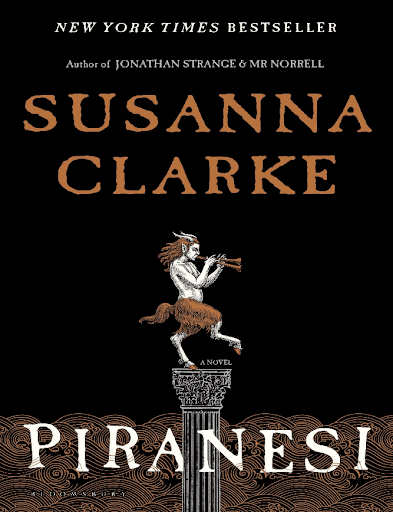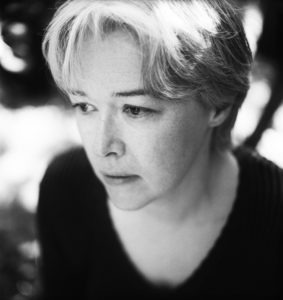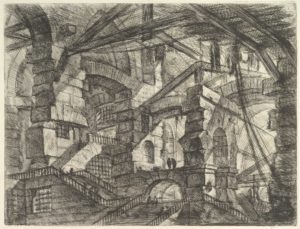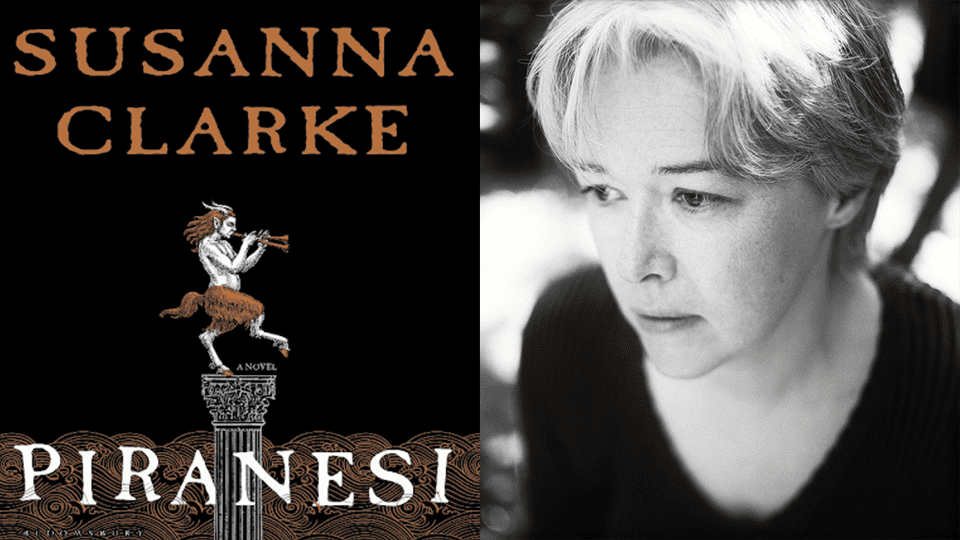Generation Black TV - Live
REVIEW: ‘Piranesi’, Women’s Prize Winner 2021 (Spoiler Free)
REVIEW: ‘Piranesi’, Women’s Prize Winner 2021 (Spoiler Free)
[simple-author-box]
Our review of Piranesi by Susanna Clarke, delivered to you without any crucial plot spoilers.

Cover of Susanna Clarke’s Piranesi
It’s a great relief to be able to confidently say that, in 2021, the writing of women is widely celebrated. However, of course, this has not always been the case. 30 years ago, after the newly established Booker Prize for Fiction had failed to include any female writers on its shortlist, groups of authors, publishers, agents, journalists, and booksellers united to create a prize in which the literary achievements of women would be celebrated: the Women’s Prize for Fiction. The first of these prizes was awarded in 1996 to Helen Dunmore with her acclaimed novel ‘A Spell of Winter’, which made history nationally and paved the way for future female writers to come.
Meanwhile, Nottingham-born Susanna Clarke, a recent Oxford graduate, was working for Simon & Schuster in Cambridge as an editor of cookbooks. Whilst she had the innerworkings of many different stories being sketched out in her head, she had not yet released her debut novel, and was unaware of the success ahead of her.
Years later, in 2004, Clarke’s debut novel ‘Jonathan Strange & Mr Norrell’ was met with critical acclaim. Readers, fans, and critics alike anticipated her second novel with excitement, but unfortunately due to illness, no novel followed for 16 years. Finally, in 2020, the streak was broken by the release of Piranesi, her soon-to-be Women’s Prize-winning fantasy tale.

Susanna Clarke
“The Beauty of the House is immeasurable; its Kindness infinite.” – Piranesi
The novel follows the intriguingly strange protagonist Piranesi, who lives in ‘the House’, an environment which seems to be a string of infinite hallways and chambers with no entrances or exits. Though an indoors environment, the House strangely plays host to nature, as Piranesi describes the regular tides of the sea, the clouds in the sky, and the fish and birds which inhabit both zones.
Whilst the House is full of statues of people, such as beekeepers and men wrapped in snakes, and skeletal evidence of past life, there are only two living people in the House: Piranesi, and ‘the Other’. Together, they search for “A Great and Secret Knowledge” which they believe to be hidden somewhere within their World.
‘I am determined to explore as much of the World as I can in my lifetime. To this end I have travelled as far as the Nine-Hundred-and-Sixtieth Hall to the West, the Eight-Hundred-and Ninetieth Hall to the North and the Seven-Hundred-and-Sixty-Eighth Hall to the South.’ – Piranesi
Whilst there are so many aspects of the novel which deserve high praise, for me the one which stands out above the rest is the beautiful way in which Clarke writes. The story is told from the perspective of Piranesi who, though in his thirties, possesses all the innocence and child-like wonder of an adolescent.
Piranesi completely embodies the quality of compassion, which is what crucially makes him such an endearing and likeable character. For example, he speaks routinely to the skeletons which he finds in the House so that they don’t feel alone, his favorite being a young girl who he believes was originally brought into the House to be his wife.

The Gothic Arch, from Carceri d’invenzione (Imaginary Prisons), circa 1749-50. Artist Giovanni Battista Piranesi. (Photo by Heritage Art/Heritage Images via Getty Images)
He is caring and thoughtful, hiding his most precious possessions in high nooks and crannies so that they don’t get damaged by the sea, and even compiling a complicated set of journals complete with a detailed index so that his successor in the House – us, the reader – will be able to read all of his findings, and know all that he knows.
Still discovering new aspects of the seemingly never-ending ‘World’, Clarke zooms in on the most tiny, beautiful, and abstract of features, such as the Clouds which ‘move in slow procession’ and the Statues which ‘appear suddenly out of the Mists’. Every aspect of this fictional world drips with stunning symbolism, and pulls you even closer into the World which Clarke has so perfectly crafted.
‘It is my belief that the World (or, if you will, the House, since the two are for all practical purposes identical) wishes an Inhabitant for Itself to be a witness to its Beauty and the recipient of its Mercies. If I leave, then the House will have no Inhabitant and how will I bear the thought of it Empty?’ – Piranesi
For me, this is the kind of book which is so smart it exhausts you, so strange it gives you the weirdest dreams. The first few pages are overwhelmingly confusing, but if you make it past that then you find yourself attached to the characters and captivated by the mystery.
I can absolutely see why, amongst a group of strong competitors written by equally talented women, Susanna Clarke’s second novel managed to top the list and, deservingly, win the Women’s Prize for Fiction 2021. I really look forward to reading more of her work, and as always, will be making it my prerogative to read all the other shortlisted novels too.


